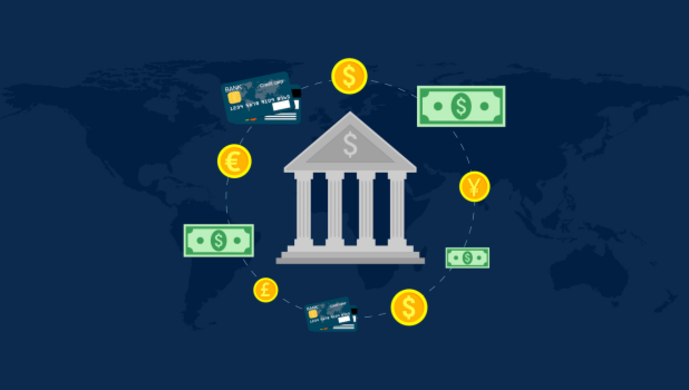Listen to the podcast in French:
Pourquoi l’apprentissage du savoir-être à l’école peut transformer la vie
There is growing evidence that positive economic and non-economic outcomes in adulthood, such as employment, income, marriage and the likelihood of a criminal record, are strongly related to social skills developed during childhood, for example perseverance, self-control and self-confidence.
Some well-known longitudinal studies, in particular the Perry Preschool Project, evaluated by Nobel prize winner James Heckman, show that early intervention for disadvantaged children can deliver long-term benefits. But until now, no study had managed to disentangle the influence of non-cognitive, social skills from cognitive, academic skills. The results of a pioneering experiment started decades ago sheds new light on this question.
A unique, remarkable study
The Montreal Longitudinal Experimental Study (MLES) was established to address behavioral problems among boys described by teachers as highly aggressive or hyperactive. In 1984, researchers randomly divided 250 such boys, aged seven to nine and living in poor Montreal neighborhoods, into two groups. Those in the intervention group received two years of coaching in social skills and self-control. The other boys were treated like all other disruptive students at the time, for example being sent out of the classroom or to the principal’s office when they caused trouble.
We are the first to provide convincing causal evidence that investment in non-cognitive skills in early elementary school can have substantial individual and social benefits in adulthood.
The boys in the MLES experimental arm received social skills training once a week over two years. The training sessions addressed a different topic each week, for example how to react to teasing, or how to invite someone to play. Participants discussed perspective-taking, developed action plans, modeled behavior, and were coached through scenarios using role-playing exercises. The researchers informed parents and teachers about the sessions and encouraged them to praise the boys for practicing the learned skills. The program focused exclusively on non-cognitive skills and provided no academic coaching or content.
A team of psychologists at the University of Montreal, led by Richard E. Tremblay, monitored the intervention and control groups over many years. Tremblay’s team conducted annual interviews with the subjects, their parents and teachers. They also analyzed the boys’ school records. As the subjects reached young adulthood, the researchers continued to conduct surveys and obtained additional data on school completion and arrests.
In partnership with Statistics Canada, we managed to access the subjects' administrative tax records. We combined this new information with the study’s prior historical data to create an unparalleled, rich, longitudinal dataset which enabled us to assess the subjects' income and employment status, as well as evaluate a range of non-economic outcomes.
A tenfold return on investment
Our study shows that the two-year skills training program delivered beneficial long-term effects for the individual participants. But it also benefited wider society by reducing rates of criminality and social dependence, while raising positive outcomes such as employment, education, likelihood of marriage, household composition, group membership, charitable donations and tuition expenditure.
We found that the MLES intervention increased average yearly employment income in adulthood by 20 percent and decreased average yearly social support by almost 40 percent compared to the control group. Specifically, the skills training raised annual income from employment by 5,708CAD per year from ages 20 to 39. On average, the control group benefited from welfare support of some kind for 3.9 years during their 20s and 30s; the trained group received benefits for 2.8 years on average. The average annual value of these benefits was 2,436CAD for the control group, and 1,507CAD for the intervention arm.
Overall, we calculated that the early childhood intervention yielded more than a tenfold return on investment. Put simply, every dollar spent on the skills coaching of an eight-year-old child had returned 11 dollars by the time that child was 39 years old.
Our calculations for this return on investment integrated a wide range of social (and hence economic) metrics. For instance, we considered the cost savings arising from a reduction in the boys having to repeat years at school or fewer being allocated into special education provision. Reduced dependence on the welfare system helped to lower benefits paid by the state. Reduced crime means fewer arrests, lower policing and administrative costs, and certainly reduced direct cost of crimes to victims, although we are unable to assign an economic value to this last cost due to a lack of data. Our final return on investment figure is therefore likely to be on the conservative side.
For full assurance, we estimated the overall benefit of the program using several alternative frameworks, methods and assumptions. Yet they all suggest very high returns on the initial investment, even when individual labour market outcomes are excluded. We can conclude with confidence that a social skills program, implemented on a large scale by the government, would pay for itself by the time subjects reach age 24.
Social skills remain crucial, even in a digital world
Our evaluation reveals that the MLES intervention significantly increased self-control and trust in early adolescence. These effects persisted and were followed by subsequent improvement in the boys’ education and social integration.
Our report represents an important and unique contribution to the literature; in no other case has a randomized trial for disruptive children been linked to adult administrative data. We are the first to provide convincing causal evidence that investment in non-cognitive skills in early elementary school can have substantial individual and social benefits in adulthood.
Supporting children to develop social skills early will continue to lend resilience to our democracy and civil society, even in times of divisiveness and rising populism.
The world is undergoing profound changes, but some things remain the same. Despite the increasing digitalization of the economy – direct human contact is becoming less needed for everyday living – there are still many roles and jobs that require high-level social skills, such as in management or negotiation. These roles are unlikely to be replaced, not in the near future at least, even by artificial intelligence or computers. Personal social skills remain at the core of commerce, cooperation and human interconnectedness. Supporting children to develop these skills early will continue to lend resilience to our democracy and civil society, even in times of divisiveness and rising populism.
References included in the podcast:
The OECD's "PISA" (Programmes for International Students Assessment) surveys shed light on the difficulties of young people in education.
References in French:
L'école de la confiance, Yann Algan, TEDxChampsElyseesED, 2015.
Economie du savoir-être, de Yann Algan et Elise Huillery, Presses de Sciences Po.







